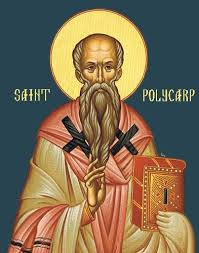HOMILY WEEK 07 03 – Week II
Being Open to God’s Will – Adapted from The Word Among Us
Memorial of St. Polycarp
(James 4:13-17; Ps 49; Mk 9:38-40)
****************************************************
We can all vividly remember how quickly our lives changed two years ago at the onset of the global pandemic. As we lived through months of lockdown, most of our plans had to be cancelled or changed. We might even have wondered if we should bother to make any plans at all!
In today’s first reading, James isn’t saying that we shouldn’t plan ahead. He just wants us to realize that many things are out of our control. As we know, even our best-laid plans can sometimes fall apart without notice.
So how do we go about making plans, all the while knowing that we can’t always count on them?
The solution is to bring God into the planning process. Even when we’re fairly certain of what we want to do – we can bring our plans to the Lord in prayer. As we pray and listen, we may sense God confirming our plans. At other times, we may sense God leading us down a different path or asking us to put things on hold for a while. And if God seems silent, then we can go ahead with our plans even as we continue to seek God’s blessing.
Yet what if our circumstances suddenly change? This can tempt us to doubt God’s ability to guide us – and we might even blame God for the change of plans. But James reminds us of the attitude we should take: “If the Lord wills it, we shall live to do this or that” (4:15). Which means that as we make our plans, we should always remember that everything depends on the grace and mercy of God.
So, we should not grasp too tightly to any of our plans. Instead, we must trust in God’s faithful care for us and believe that God is still at work in spite of an unexpected development. Then when our plans are disrupted – even quite unexpectedly, as they were with Covid – we can still have peace and confidence.
The peace of God that surpasses all understanding will, in fact, sustain us because we have placed our hope and trust in God and not in the outcome of our plans and decisions.
Step 11 of the Twelve Step program is very appropriate for us today: “Sought through prayer and meditation to improve my conscious contact with God, seeking only the knowledge of God’s will for us, and the power to carry it out.”
 Today the Church honor St. Polycarp, who is one of the Fathers of the early Church. His letter to the Philippians is one of the early pieces of Christian writing in existence today. A disciple of the apostle John, he was a leader of the second generation of Christians, the first Christians who were not eyewitnesses to the death and resurrection of Our Lord. Extremely influential in the catechesis and initiation of new Christians, he was named bishop of Smyrna, located in modern-day Turkey. Polycarp was martyred for his faith about the year 155, at the age of 86. He is a patron of those suffering from earaches.
Today the Church honor St. Polycarp, who is one of the Fathers of the early Church. His letter to the Philippians is one of the early pieces of Christian writing in existence today. A disciple of the apostle John, he was a leader of the second generation of Christians, the first Christians who were not eyewitnesses to the death and resurrection of Our Lord. Extremely influential in the catechesis and initiation of new Christians, he was named bishop of Smyrna, located in modern-day Turkey. Polycarp was martyred for his faith about the year 155, at the age of 86. He is a patron of those suffering from earaches.
The Eucharist is very much part of God’s plan for us and the will of Jesus, who took bread and wine, blessed, broke and shared it as he asked us to do this in memory of him, and we have been faithful to that command for 2,000 years.



